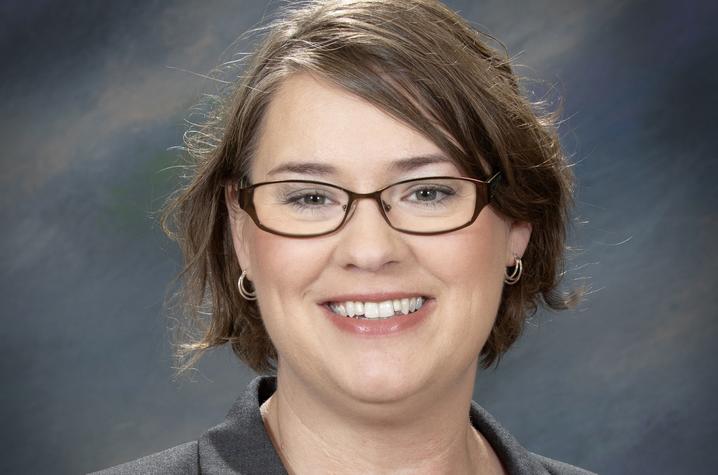University of Kentucky names new Veterinary Diagnostic Laboratory director

LEXINGTON, Ky. (March 31, 2025) — The University of Kentucky Martin-Gatton College of Agriculture, Food and Environment announce the appointment of Rebecca Wilkes, D.V.M., Ph.D., as the new UK Veterinary Diagnostic Laboratory (UKVDL) director.
Wilkes brings more than two decades of experience in veterinary microbiology, virology and molecular diagnostics — guiding one of the nation’s premier veterinary diagnostic centers in continuing to serve the Commonwealth’s vital agricultural and equine industries.
“We are honored to have someone of Dr. Wilkes’ caliber lead the Veterinary Diagnostic Lab,” said Brett Sponseller, Department of Veterinary Science chair and director of the Maxwell H. Gluck Equine Research Center. “Her leadership in veterinary diagnostics and infectious disease research makes her the ideal choice to direct the lab, ensuring cutting-edge diagnostic capabilities for the Commonwealth’s vital equine industry. Her expertise and vision will strengthen veterinary professionals’ ability to safeguard animal health, advancing both equine medicine and the broader veterinary community.”
Originally from Tennessee, Wilkes earned her Doctor of Veterinary Medicine degree from the University of Tennessee College of Veterinary Medicine in 2001. She went on to complete a Ph.D. in Comparative and Experimental Medicine from the same institution in 2007, specializing in virology and molecular biology. She is board-certified by the American College of Veterinary Microbiologists in both virology and bacteriology/mycology.
After serving as a research assistant professor at the University of Tennessee College of Veterinary Medicine, she joined the University of Georgia in 2015 as an assistant professor and head of the molecular and virology/serology laboratory sections at the Tifton Veterinary Diagnostic and Investigational Laboratory.
In 2018 Wilkes joined Purdue University as an assistant professor. She then became section head for the molecular laboratory at the Indiana Animal Disease Diagnostic Laboratory and an associate professor in 2021 in Purdue’s Department of Comparative Pathobiology.
Wilkes’ recent work has focused on designing targeted next-generation sequencing panels for detecting infectious diseases in animals, a key advancement for syndromic testing. In assuming leadership of the UKVDL, she looks forward to collaborating with the lab’s accomplished diagnostic team and harnessing cutting-edge technologies to better serve Kentucky’s animal industries.
“I am honored to have been selected for this position, and I fully recognize its significant responsibility,” Wilkes said. “I am committed to leading a highly qualified team of like-minded professionals to further enhance the UKVDL’s esteemed reputation. I am eager to serve the equine industry of the Commonwealth and our additional stakeholders with dedication and excellence.”
James Matthews, Martin-Gatton CAFE associate dean for research and professor in the Department of Animal and Food Sciences, echoed the importance of Wilkes’ role.
“The lab is critical not only for detecting animal disease outbreaks important to farmers and pet owners, but also for protecting public health by monitoring the spread of zoonotic diseases and antimicrobial resistance pathogens,” Matthews said. “Dr. Wilkes’ expertise in infectious disease diagnostics makes her ideal to steer this mission.”
To learn more about the UK Veterinary Diagnostic Laboratory and how it’s more than a lab, visit: https://vdl.uky.edu/.
As the state’s flagship, land-grant institution, the University of Kentucky exists to advance the Commonwealth. We do that by preparing the next generation of leaders — placing students at the heart of everything we do — and transforming the lives of Kentuckians through education, research and creative work, service and health care. We pride ourselves on being a catalyst for breakthroughs and a force for healing, a place where ingenuity unfolds. It's all made possible by our people — visionaries, disruptors and pioneers — who make up 200 academic programs, a $476.5 million research and development enterprise and a world-class medical center, all on one campus.




